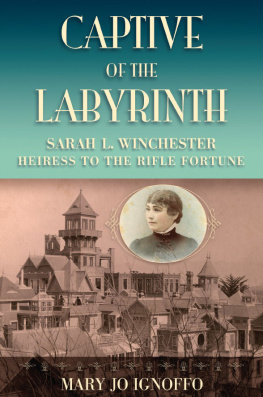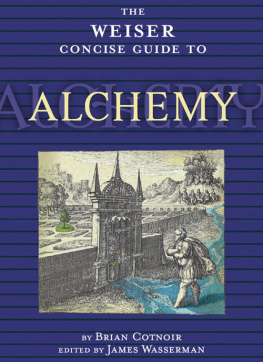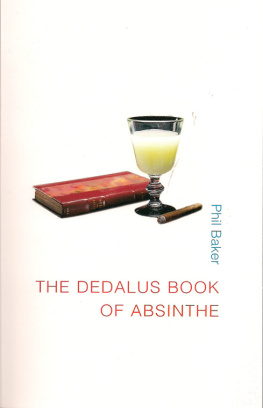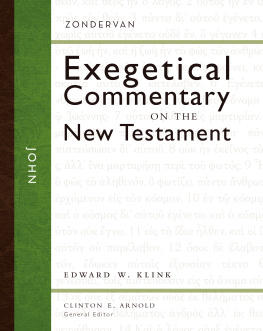Disknowledge
Disknowledge
Literature, Alchemy, and the End of Humanism
in Renaissance England
Katherine Eggert
PUBLISHED IN COOPERATION WITH
FOLGER SHAKESPEARE LIBRARY

Copyright 2015 University of Pennsylvania Press
All rights reserved. Except for brief quotations used for
purposes of review or scholarly citation, none of this book
may be reproduced in any form by any means without
written permission from the publisher.
Published by
University of Pennsylvania Press
Philadelphia, Pennsylvania 19104-4112
www.upenn.edu/pennpress
Printed in the United States of America on acid-free paper
10 9 8 7 6 5 4 3 2 1
A catalogue record for this book is available
from the Library of Congress.
ISBN 978-0-8122-4751-0
For Richard Eggert
CONTENTS
NOTES ON TEXTS, BIBLICAL QUOTATIONS,
AND BIBLIOGRAPHY
I have retained the original spelling and typography of quotations from medieval and early modern texts, except that I have silently expanded contractions, modernized i/j, u/v, uu/w, long s, and Middle English characters, and romanized nonmeaningful italicization. The exception is in quotations from Edmund Spenser, where I have followed the scholarly convention of retaining i/j and u/v spellings and all italicization. Early modern texts are quoted by page number when pagination is present and reliable. If there is some question about the reliability of an early modern volumes pagination, I have included signature numbers as well as page numbers.
All biblical quotations, unless otherwise noted, are from The Geneva Bible: A Facsimile of the 1560 Edition (Madison: University of Wisconsin Press, 1969).
Full bibliographical information for every source cited is given at first mention in the notes. More frequently cited sources are also listed in the select bibliography.
Disknowledge
Introduction
There are more things in heaven and earth, Horatio, says Hamlet to his friend, Than are dreamt of in your philosophy. On the face of it, this is a quite reasonable thing to say at this moment in the play. Occasioned by the Ghosts appearance, which has rattled both men, Hamlets remark suggests that ghosts are not something that you can think about properly, not in the framework you have at hand. When Horatio calls the Ghost wondrous strange, Hamlets observation assures him that this apparition falls into the category of things not knowable (1.5.172).
The question then becomes, though, how you are to think at all. One optionone that may seem tempting at this point in Hamletis to leave off thinking altogether. Certainly thinking has gotten no one anywhere so far in act 1. The watch and Horatio alike have been utterly wrong about what the Ghosts appearance portends, and Hamlet himself has already cast the political and familial complexities of the royal household in the half-light of his own highly idiosyncratic, and hence highly questionable, speculations and emotions. Now, after the Ghosts revelation raises more questions than it answers, Hamlet recommends to the other men that they suppress any desire for knowledge they may have. For your desire to know what is between usthat is, between Hamlet and the GhostOermaster it as you may (1.5.14546). What a relief to be permitted to remain simply ignorant! If you never have to try to know anything, you never feel the shame of coming up with a theory that is manifestly wrong.
It is quite possible, however, that what Horatio calls wondrous strange is not the Ghost but Hamlet himself, whose wild and whirling words Horatio has already noted (1.5.139). And one of the most wondrously strange things Hamlet does in this sequence is put Horatio and the soldiers of the watch in what appears to be an untenable epistemological position. First, despite the fact that Hamlet excuses them from epistemic effort, it is clear that they do know something, or else Hamlet would not warn them to keep their knowledge of the Ghost close: Never make known what you have seen tonight (1.5.149). Second, what they are not to make known includes the fact that they know what Hamlet is up to when he put[s] an antic disposition on so as to hide his intent: never... note / That you know aught of me (1.5.17787). While the men dont know what Hamlet has learned from the Ghost, they know that he has deemed the Ghost honest and thus has established a kind of working relationship with it (1.5.144). The sum effect of these remarks is that Hamlet evidently wants them not to know about the Ghost and about Hamlets relation to the Ghost, even while they do know about the Ghost and about Hamlets relation to the Ghost.
It is the founding premise of this book that Hamlets epistemological request, while perhaps wondrous strange, is perfectly plausible. It is possible not to know what one knows. Indeed, Hamlet, Horatio, and others like themthat is to say, humanistically educated men of the turn of the seventeenth centurywere especially in need of this tricky epistemological maneuver as well as especially good at it. The knowledge practices of the late sixteenth and seventeenth centuries, I will be arguing, found themselves in such a long-standing crisis that such gyrations started to make sense. In this long interval of time England saw humanism, with its faith in how classical letters could shape moral and civic virtue, becoming less and less credible. But despite calls by the likes of Francis Bacon to sweep aside antiquated learning and start fresh, there was nothing to replace humanismnot yet. A discredited knowledge system that is nonetheless the only game in town: such a thing, as I will argue toward the end of this book, is largely what Hamlet has in mind. Before I get back to Hamlet, though, I will establish that Hamlets agean age that we may call late humanism, the Counter-Renaissance, or merely Englands late Renaissancedevelops a number of strategies for managing knowledge that are peculiar to the needs of a society governed by a threadbare but still ubiquitously operative educational scheme.
Many of those strategies amount to means for knowing less. The equal and opposite impulse of what William West has called the encyclopedia culture of early modern Europea culture obsessed with collecting and sorting information... driven by the desire to map the worlds order and to construct a universal theory of everythingis an impulse to keep knowledge small, comfortable, familiar. One response to the discomfort of the new is to stick with the old.
Other strategies for managing unpalatable knowledge in an age of late humanism, however, are more complicated and epistemologically interesting than simply constricting informations flow. These strategies cultivate the stance Hamlet advocates: being acquainted with something and being ignorant of it, both at the same time. I have invented my own word, disknowledge, for this peculiar epistemological maneuver, because neither the Renaissance nor my own age provides me with exactly the right term. True, the early modern period devised wonderful new language to express how it feels to believe one knows nothing. The sixteenth century, for example, saw the word skeptic enter English as a way of describing the state of epistemological anguish that Maurice Blanchot would later call unknowing.
In this book I seek to catch disknowledge in action in a number of literary texts, and a few nonliterary texts, from Englands late Renaissance. I ask what purpose disknowledge serves. From what kind of knowledge is the text I am interested in that perverse insistence, however, not when it is an irruption of the texts political unconscious but when it is a demonstrably conscious choice.
Next page






